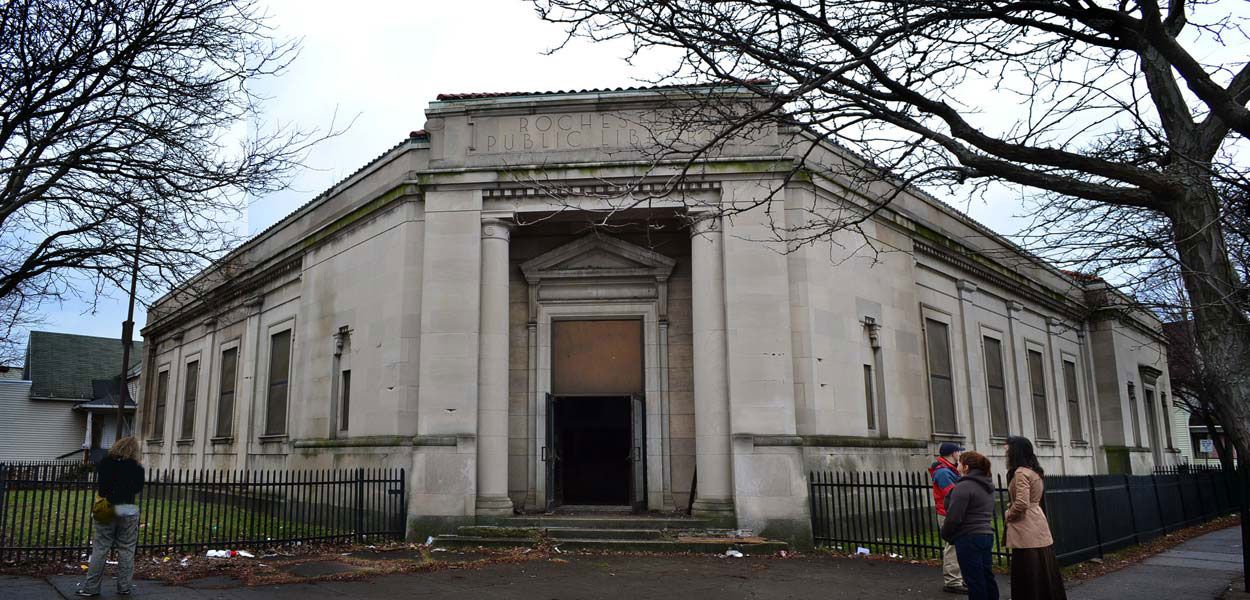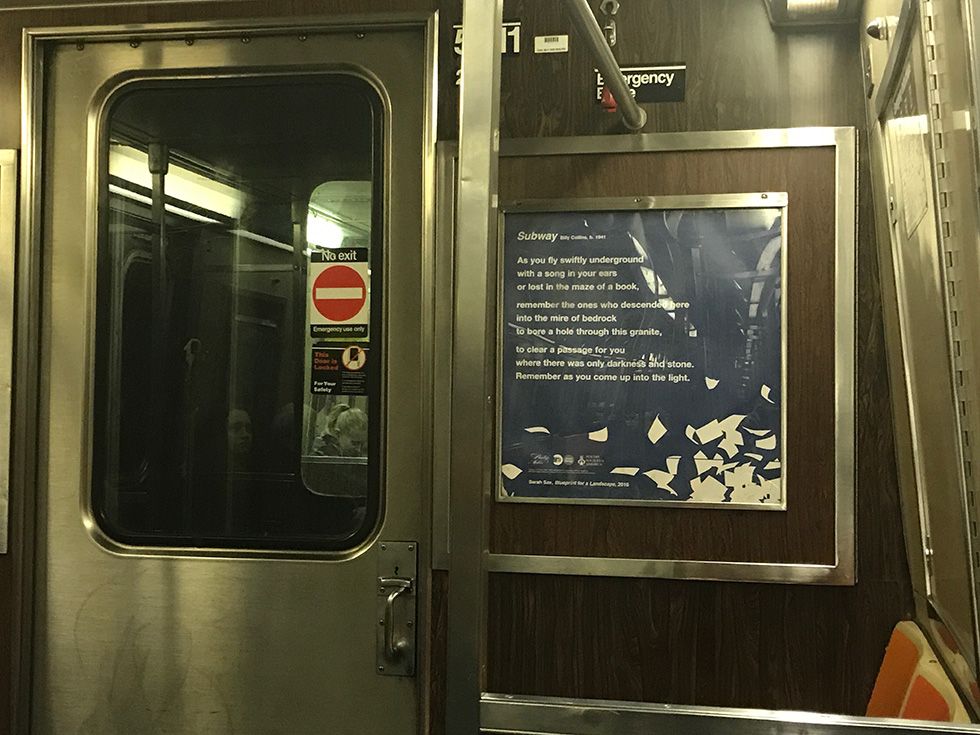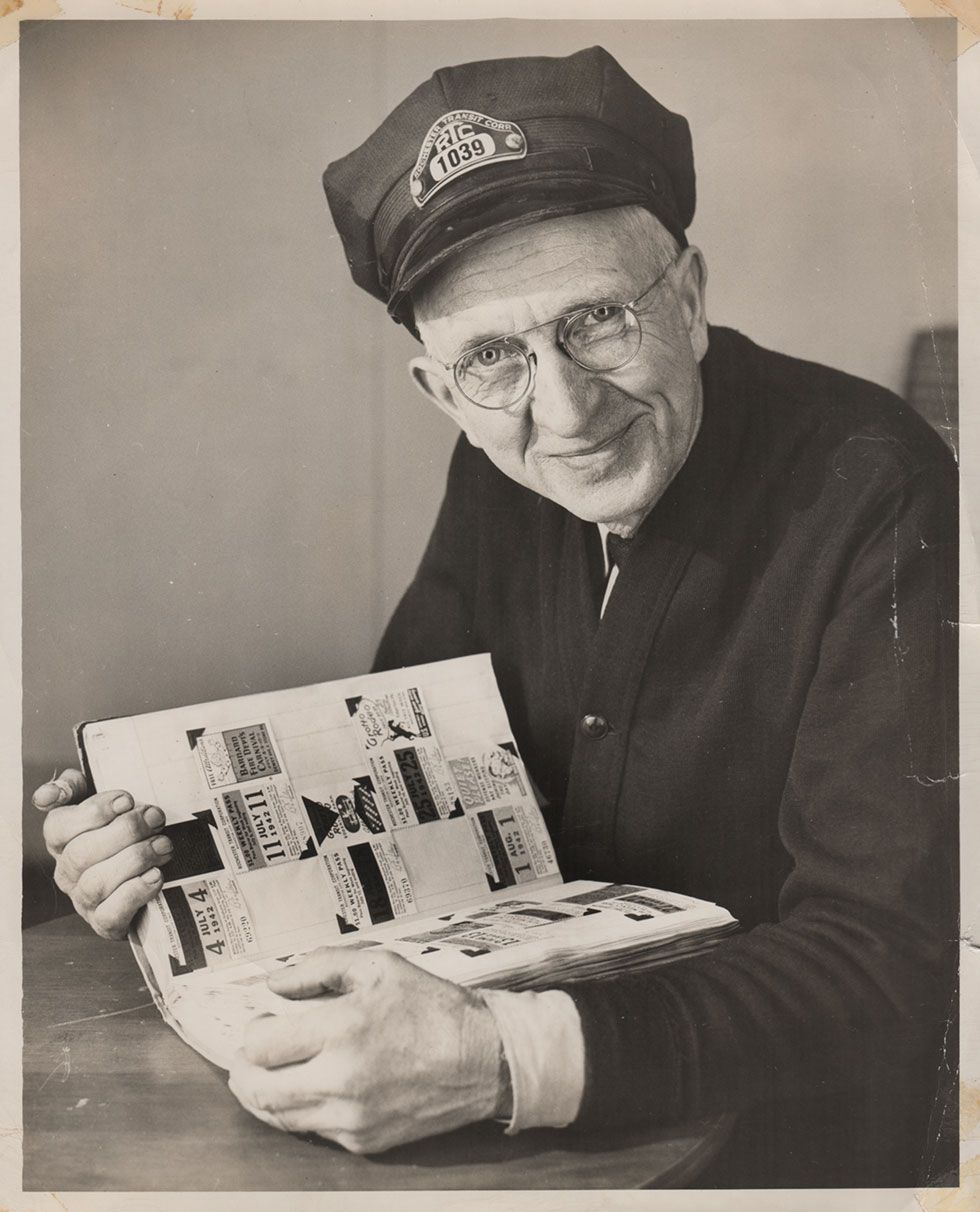This article was scraped from Rochester Subway. This is a blog about Rochester history and urbanism has not been published since 2017. The current owners are now publishing link spam which made me want to preserve this history.. The original article was published January 31, 2013 and can be found here.
![Inside Rochester's Pulaski Library. [IMAGE: RochesterSubway.com]](https://senseofplace.dev/content/images/photos/rochester-pulaski-library-01b.jpg)
Rochester's Pulaski Library (originally the Hudson Avenue branch) was the second permanent library constructed by the City. As explained here

, the library was closed in 1994, and has sat unused until last week when the City opened the doors to potential buyers. If you're interested, the City wants your proposal

by March 4. $1,000 to buy it, but you've got to show you've got a serious plan to rehab the property. Historic tax credits and grants could help take a bite out of the million dollars it could cost you when all is said and done. If you missed the open house, here's a look inside...
![Inside Rochester's Pulaski Library. [IMAGE: RochesterSubway.com]](https://senseofplace.dev/content/images/photos/rochester-pulaski-library-02.jpg)
Prior to construction at the corner of Hudson and Norton Avenues

, the library system consisted of twelve temporary sites and the newly constructed permanent Monroe Avenue branch.
![Inside Rochester's Pulaski Library. [IMAGE: RochesterSubway.com]](https://senseofplace.dev/content/images/photos/rochester-pulaski-library-03.jpg)
In 1931, 46 Polish organizations and churches from this densely populated Polish community petitioned to have the branch named after Revolutionary War hero Brigadier General Casmir Pulaski, a native of Poland who journeyed to America to join the war for independence.
![Inside Rochester's Pulaski Library. [IMAGE: RochesterSubway.com]](https://senseofplace.dev/content/images/photos/rochester-pulaski-library-04.jpg)
Pulaski, who was with General Washington at Valley Forge, was killed in a charge at the battle of Savannah in 1779.
![Inside Rochester's Pulaski Library. [IMAGE: RochesterSubway.com]](https://senseofplace.dev/content/images/photos/rochester-pulaski-library-05.jpg)
In 1929, President Herbert Hoover declared October 11 a national holiday to honor Pulaski on the 150th anniversary of his death.
![Inside Rochester's Pulaski Library. [IMAGE: RochesterSubway.com]](https://senseofplace.dev/content/images/photos/rochester-pulaski-library-08.jpg)
The City turned down the request to name the library after General Pulaski saying it would ruin the precedent of naming branch libraries after the building location. Although they were turned down, citizens were allowed to mount a big bronze plaque on the library wall in honor of General Pulaski. Hidden inside the wall behind the plaque was included a time capsule with mementos from the Polish community.
![Inside Rochester's Pulaski Library. [IMAGE: RochesterSubway.com]](https://senseofplace.dev/content/images/photos/rochester-pulaski-library-06.jpg)
50 years later, in 1981 the Polish community again petitioned the City. This time their name change request was approved. And, on the library's 50th anniversary the time capsule was removed from the wall. I'm guessing that hole in the wall over the door (shown above) was where the plaque and time capsule were located.
![Inside Rochester's Pulaski Library. [IMAGE: RochesterSubway.com]](https://senseofplace.dev/content/images/photos/rochester-pulaski-library-07.jpg)
Newspaper accounts indicate that this library was larger than most of the other libraries because it was expected to be busy due to its proximity to the new, and very large, Benjamin Franklin High School.
![Inside Rochester's Pulaski Library. [IMAGE: RochesterSubway.com]](https://senseofplace.dev/content/images/photos/rochester-pulaski-library-09.jpg)
The library is a tall one-story building with the exception of a small second story office over the rear entrance foyer (shown above).
![Inside Rochester's Pulaski Library. [IMAGE: RochesterSubway.com]](https://senseofplace.dev/content/images/photos/rochester-pulaski-library-10.jpg)
The full basement is accessible via several sets of stairs - one of which is hidden behind this book case.
![Inside Rochester's Pulaski Library. [IMAGE: RochesterSubway.com]](https://senseofplace.dev/content/images/photos/rochester-pulaski-library-11.jpg)
![Inside Rochester's Pulaski Library. [IMAGE: RochesterSubway.com]](https://senseofplace.dev/content/images/photos/rochester-pulaski-library-12.jpg)
This stairway was known as the "secret passageway" and led to the children's Story Hour Room located in the basement.
![Inside Rochester's Pulaski Library. [IMAGE: RochesterSubway.com]](https://senseofplace.dev/content/images/photos/rochester-pulaski-library-13.jpg)
A children's poster on the wall - probably here since the early 1990's.
![Inside Rochester's Pulaski Library. [IMAGE: RochesterSubway.com]](https://senseofplace.dev/content/images/photos/rochester-pulaski-library-14.jpg)
The basement...
![Inside Rochester's Pulaski Library. [IMAGE: RochesterSubway.com]](https://senseofplace.dev/content/images/photos/rochester-pulaski-library-15.jpg)
![Inside Rochester's Pulaski Library. [IMAGE: RochesterSubway.com]](https://senseofplace.dev/content/images/photos/rochester-pulaski-library-16.jpg)
![Inside Rochester's Pulaski Library. [IMAGE: RochesterSubway.com]](https://senseofplace.dev/content/images/photos/rochester-pulaski-library-17.jpg)
An interior window in the darkest area of the basement.
![Inside Rochester's Pulaski Library. [IMAGE: RochesterSubway.com]](https://senseofplace.dev/content/images/photos/rochester-pulaski-library-18.jpg)
Looking up inside a dumbwaiter elevator shaft, once used to move books between the three levels.
![Inside Rochester's Pulaski Library. [IMAGE: RochesterSubway.com]](https://senseofplace.dev/content/images/photos/rochester-pulaski-library-19.jpg)
The main stair case from the basement to the first and second floors.
![Inside Rochester's Pulaski Library. [IMAGE: RochesterSubway.com]](https://senseofplace.dev/content/images/photos/rochester-pulaski-library-20.jpg)
![Inside Rochester's Pulaski Library. [IMAGE: RochesterSubway.com]](https://senseofplace.dev/content/images/photos/rochester-pulaski-library-21.jpg)
A view through a window of the rear of the building.
![Inside Rochester's Pulaski Library. [IMAGE: RochesterSubway.com]](https://senseofplace.dev/content/images/photos/rochester-pulaski-library-22.jpg)
Random pieces like doors and book shelves are scattered throughout.
![Inside Rochester's Pulaski Library. [IMAGE: RochesterSubway.com]](https://senseofplace.dev/content/images/photos/rochester-pulaski-library-23.jpg)
Some closets and the first floor access to the dumbwaiter system on the right.
![Inside Rochester's Pulaski Library. [IMAGE: RochesterSubway.com]](https://senseofplace.dev/content/images/photos/rochester-pulaski-library-24.jpg)
The main desk, furniture, trim work, and book cases look to be solid oak. And maybe not too far gone, given all the moisture.
![Inside Rochester's Pulaski Library. [IMAGE: RochesterSubway.com]](https://senseofplace.dev/content/images/photos/rochester-pulaski-library-25.jpg)
![Inside Rochester's Pulaski Library. [IMAGE: RochesterSubway.com]](https://senseofplace.dev/content/images/photos/rochester-pulaski-library-26.jpg)
A bay window and fireplace mantel hidden behind a pile of broken furniture in what was once the children's section.
![Inside Rochester's Pulaski Library. [IMAGE: RochesterSubway.com]](https://senseofplace.dev/content/images/photos/rochester-pulaski-library-27.jpg)
The concrete floors are covered with a slushy mix of ice, water, and debris.
![Inside Rochester's Pulaski Library. [IMAGE: RochesterSubway.com]](https://senseofplace.dev/content/images/photos/rochester-pulaski-library-28.jpg)
According to the National Register of Historic Places Registration Form on this building from 2001, "The Pulaski Library has for 70 years been a city landmark and source of pride for local residents of Polish heritage." What does it say about us as a community if this is how we treat our most prized landmarks?


